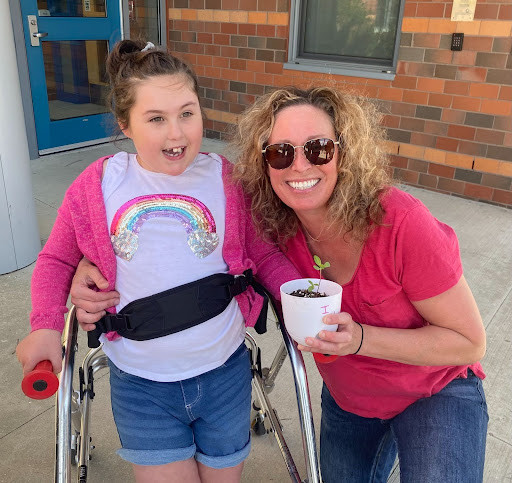Kasey Walsh on Advocacy, Genetic Testing, and Building a Platform to Transform Families' Stories Into Change

When her daughter was just a toddler, Kasey Walsh knew something was wrong. Searching the web, it looked like cerebral palsy, but when further researched, the pieces didn't fit. Trying to find answers, Walsh went down a path few parents could imagine. Genetic testing revealed her daughter had a rare form of hereditary spastic paraplegia, a neurological condition that closely resembles cerebral palsy but follows a different course. At the time, her daughter was among only a handful of known cases worldwide.
For Walsh, the diagnosis was both devastating and clarifying. It explained years of unanswered questions and gave her a direction. But it also revealed a gap that many parents face: too often, rare conditions go undiagnosed or misdiagnosed, and children miss opportunities for existing treatments. "Some families stop at the first label, and they never learn there could be a therapy on the shelf that might help," she says.
Walsh's journey into rare disease advocacy did not begin as a novice. Before becoming a mother, she worked as a healthcare service coordinator, moderating patient and caregiver support groups. That role gave her a deep understanding of what families endure, allowing her to navigate medical systems, search for answers, and balance hope with uncertainty.
Still, nothing prepared her for the lived experience of caring for a child with a rare disease. She found herself scouring online communities, reading medical studies, and trading notes with other parents. In those networks, she noticed something striking. "There were countless conversations where parents were sharing test results or symptoms that were not being studied," Walsh explains. "They were dismissed as anecdotes, but some of them pointed to real pathways that could lead to additional therapeutic options."
That grassroots intelligence, she believes, has already changed outcomes. Through personal efforts, she connected her nonprofit to researchers who were able to identify various pathways impacted through biological testing of patients, predicting existing FDA-approved drugs to test in disease models, which showed signs of efficacy. Observational studies are now being planned. "It all started with parents noticing what was not being captured," Walsh says.
Her advocacy also runs parallel to her own health story. During the pandemic, Walsh developed chronic fatigue and other puzzling symptoms that doctors could not explain. "Every test came back normal, but I knew something was wrong," she says. Only after joining online patient groups did she learn about a connective tissue disorder that matched her experience, which later led to a diagnosis. The discovery confirmed what she already believed: persistence and peer networks can be life-changing.
Today, Walsh is building Winsights.life, a community-driven research platform that aims to turn lived experiences into real-world evidence. Still in development, the project envisions a HIPAA-protected space where families own their health data, track their child's progress, and connect with others navigating similar conditions. By using artificial intelligence to sift through conversations and structured surveys, the platform could identify patterns invisible to clinicians working in isolation.

But for Walsh, Winsights.life is still in the future. What matters most to her now is the message she wants every parent to hear: genetic testing can change the course of a child's life. Even when recommended, only a fraction of families pursue it. "Sometimes free testing is available, but people don't know it," she says. Without it, potential therapies may remain out of reach.
Her advice is both practical and urgent. "Trust your instincts. Get second and third opinions if you need to. You know your child better than anyone else," Walsh insists. She acknowledges the challenges. Rare disease advocacy can be isolating and overwhelming, but she stresses that parents have power. "The parent has the greatest motivation," she says. "Doctors care deeply, but they see many patients. Parents see every detail, every day."
Walsh has seen firsthand how persistence can lead to progress. Her daughter's diagnosis, once among the rarest in the world, has since become the subject of new clinical research. Families who once had no roadmap now see signs of hope.
For Walsh, the journey remains deeply personal. Yet through her work and her voice, she hopes to make it easier for the next families, parents, or patients searching for answers. "If what I have learned can shorten that path for someone else, then it's worth it," she says.
© Copyright IBTimes 2025. All rights reserved.



















